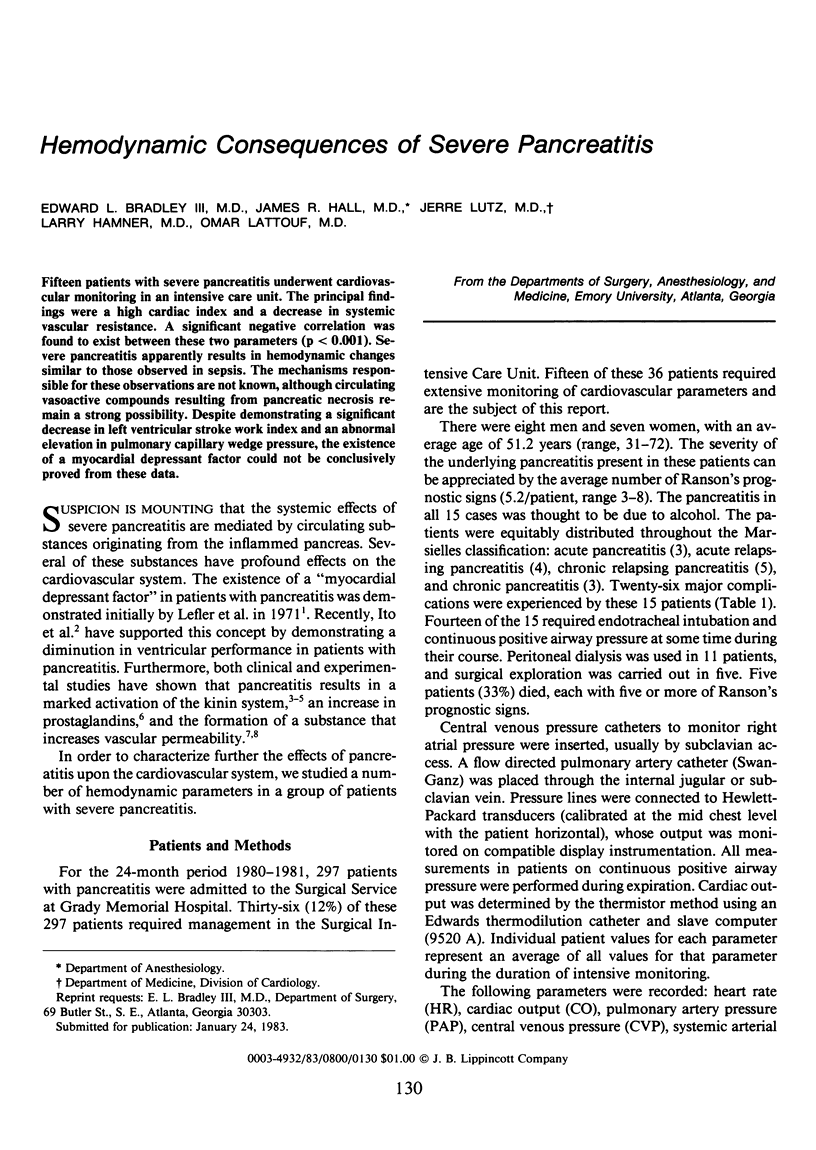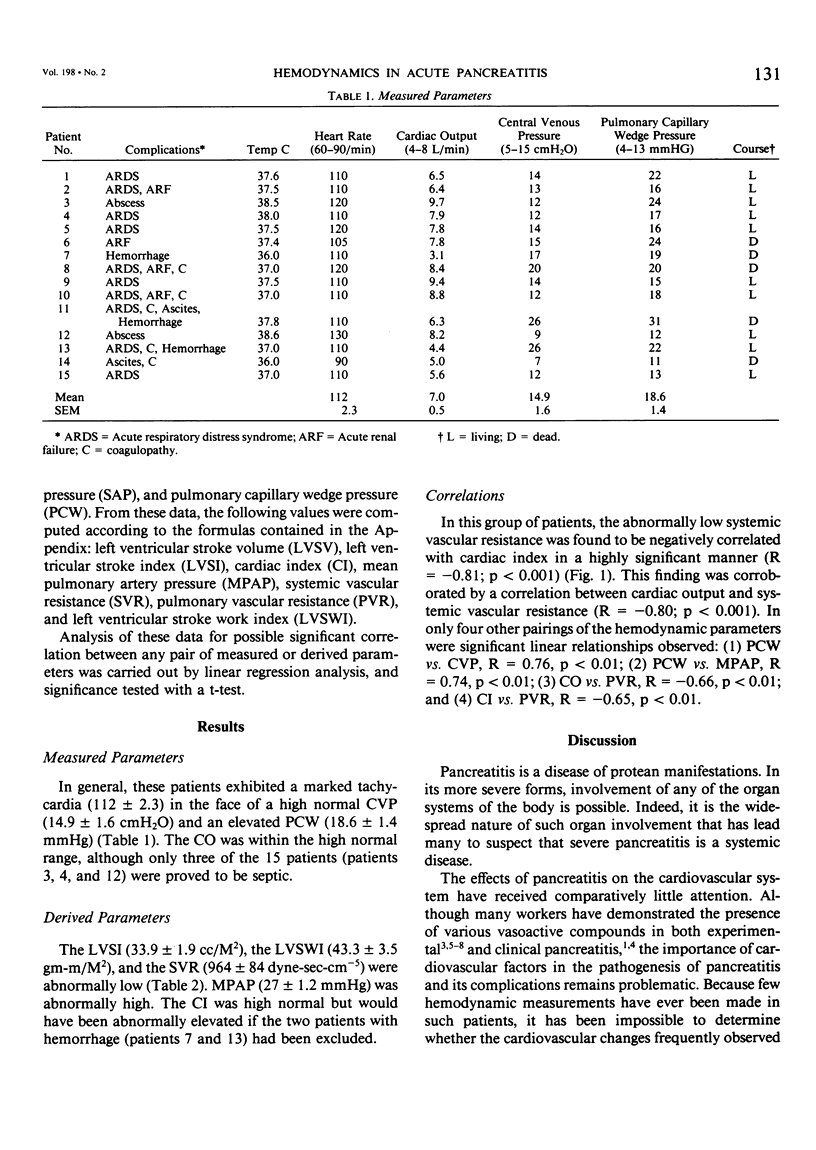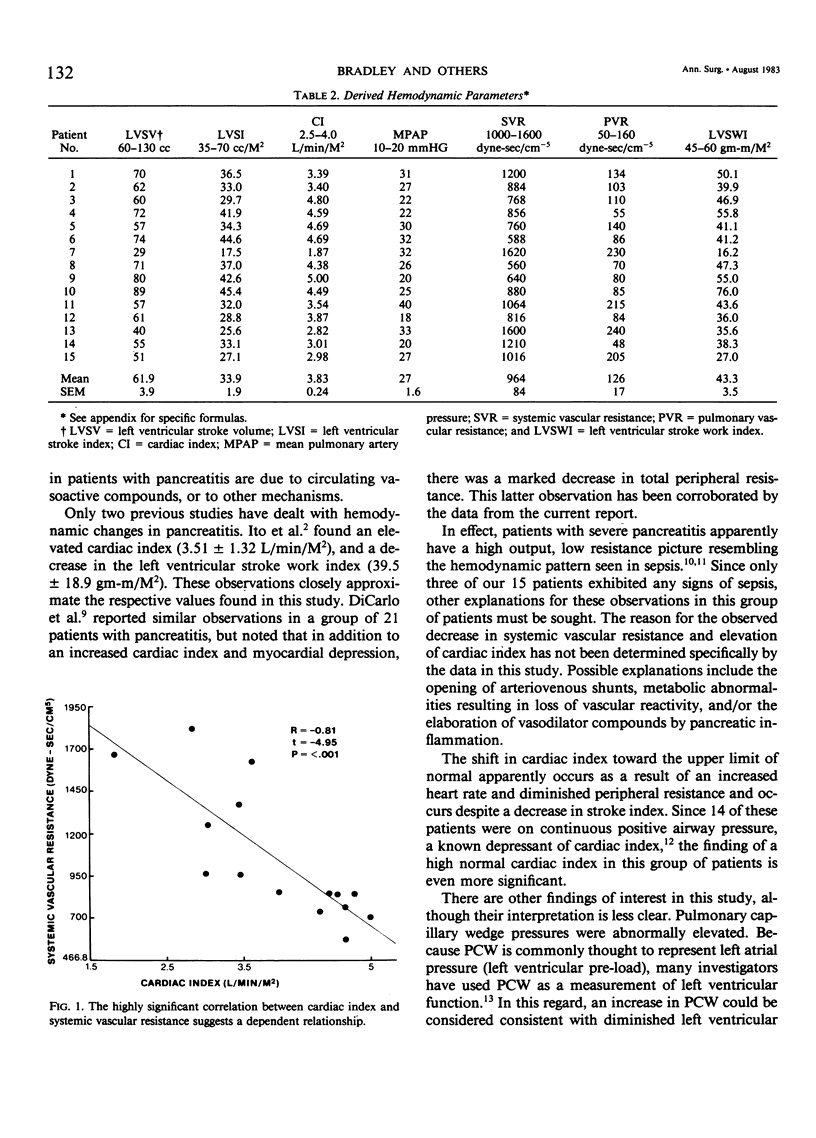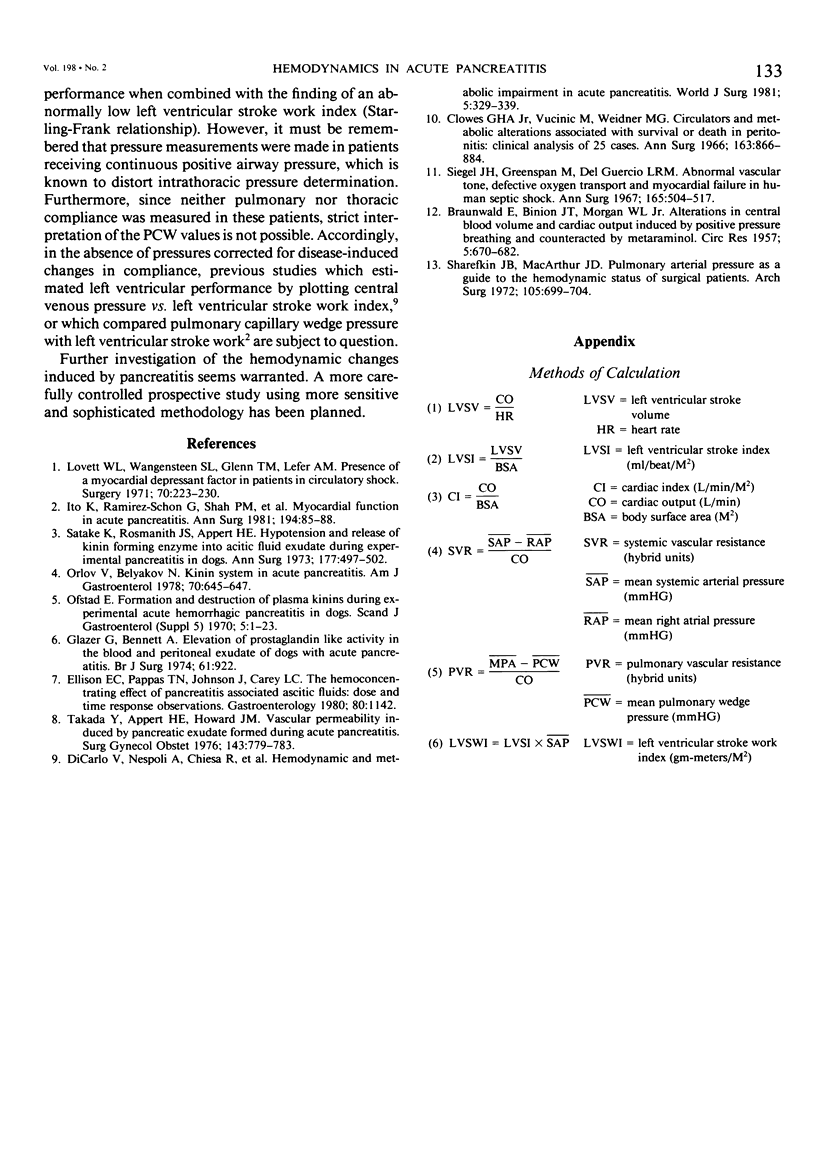Abstract
Fifteen patients with severe pancreatitis underwent cardiovascular monitoring in an intensive care unit. The principal findings were a high cardiac index and a decrease in systemic vascular resistance. A significant negative correlation was found to exist between these two parameters (p less than 0.001). Severe pancreatitis apparently results in hemodynamic changes similar to those observed in sepsis. The mechanisms responsible for these observations are not known, although circulating vasoactive compounds resulting from pancreatic necrosis remain a strong possibility. Despite demonstrating a significant decrease in left ventricular stroke work index and an abnormal elevation in pulmonary capillary wedge pressure, the existence of a myocardial depressant factor could not be conclusively proved from these data.
Full text
PDF



Selected References
These references are in PubMed. This may not be the complete list of references from this article.
- BRAUNWALD E., BINION J. T., MORGAN W. L., Jr, SARNOFF S. J. Alterations in central blood volume and cardiac output induced by positive pressure breathing and counteracted by metaraminol (aramine). Circ Res. 1957 Nov;5(6):670–675. doi: 10.1161/01.res.5.6.670. [DOI] [PubMed] [Google Scholar]
- Clowes G. H., Jr, Vucinic M., Weidner M. G. Circulatory and metabolic alterations associated with survival or death in peritonitis: clinical analysis of 25 cases. Ann Surg. 1966 Jun;163(6):866–885. doi: 10.1097/00000658-196606000-00008. [DOI] [PMC free article] [PubMed] [Google Scholar]
- Di Carlo V., Nespoli A., Chiesa R., Staudacher C., Cristallo M., Bevilacqua G., Staudacher V. Hemodynamic and metabolic impairment in acute pancreatitis. World J Surg. 1981 May;5(3):329–339. doi: 10.1007/BF01657989. [DOI] [PubMed] [Google Scholar]
- Ito K., Ramirez-Schon G., Shah P. M., Agarwal N., Delguercio L. R., Reynolds B. M. Myocardial function in acute pancreatitis. Ann Surg. 1981 Jul;194(1):85–88. doi: 10.1097/00000658-198107000-00015. [DOI] [PMC free article] [PubMed] [Google Scholar]
- Lovett W. L., Wangensteen S. L., Glenn T. M., Lefer A. M. Presence of a myocardial depressant factor in patients in circulatory shock. Surgery. 1971 Aug;70(2):223–231. [PubMed] [Google Scholar]
- Orlov V., Belyakov N. Blood kallikrein. Kinin system in acute pancreatitis. Am J Gastroenterol. 1978 Dec;70(6):645–648. [PubMed] [Google Scholar]
- Satake K., Rozmanith J. S., Appert H. E., Carballo J., Howard J. M. Hypotension and release of kinin-forming enzyme into ascitic fluid exudate during experimental pancreatitis in dogs. Ann Surg. 1973 Apr;177(4):497–502. doi: 10.1097/00000658-197304000-00019. [DOI] [PMC free article] [PubMed] [Google Scholar]
- Sharefkin J. B., MacArthur J. D. Pulmonary arterial pressure as a guide to the hemodynamic status of surgical patients. Arch Surg. 1972 Nov;105(5):699–704. doi: 10.1001/archsurg.1972.04180110024008. [DOI] [PubMed] [Google Scholar]
- Siegel J. H., Greenspan M., Del Guercio L. R. Abnormal vascular tone, defective oxygen transport and myocardial failure in human septic shock. Ann Surg. 1967 Apr;165(4):504–517. doi: 10.1097/00000658-196704000-00002. [DOI] [PMC free article] [PubMed] [Google Scholar]
- Takada Y., Appert H. E., Howard J. M. Vascular permeability induced by pancreatic exudate formed during acute pancreatitis in dogs. Surg Gynecol Obstet. 1976 Nov;143(5):779–783. [PubMed] [Google Scholar]



